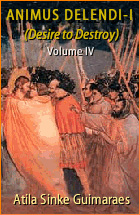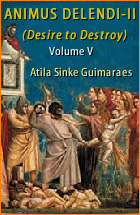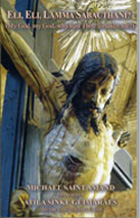NEWS: October 30, 2023
 |
 |
 |
 |
 |
 |
 |
Bird’s Eye View of the News

THE SYNOD REPORT: AN EMPTY BOX THAT STINKS –
After 25 days of meetings, the Synod on Synodality ended yesterday, October 29, as being a little more than nothing, as far as the expectations raised among progressivists and the fears nursed among conservatives are concerned.
October 28 saw the release of its final document titled A Synthesis Report, which presented the proposals of the 350 voting Bishops and members.
Before entering into the great omissions of this meeting, which frustrated both the radical progressivists and those conservatives predicting the Deluge to come from this Synod, I would like to mention to my readers some fundamental realities that were not taken into consideration by both sides during the highly emotional period of preparation and the actual realization of the Synod.
Approval was expected for four major proposals: blessings for homosexual couples, married priests, the deaconate for women, and the approval of Communion for divorced and remarried couples. Let me focus on each one as addressed in the Synthesis Report, the final document of the 2023 Synod:
I can well understand why the progressivists are frustrated. These affirmations are nothing but the repetition of earlier middle-of-the-road progressivist statements, without adding anything new.
This is why I say that the Synthesis Report is an empty box. I also say that when we open this box, it smells of trash, because it recycles – with a nauseating subservience to Francis – the same bad conciliar doctrine putting emphasis on synodality.
So, if the Synod was just a repeat performance, why did it gather with such fanfare?
I will answer this question in my next column, which I hope will soon be forthcoming.

October 28 saw the release of its final document titled A Synthesis Report, which presented the proposals of the 350 voting Bishops and members.
Before entering into the great omissions of this meeting, which frustrated both the radical progressivists and those conservatives predicting the Deluge to come from this Synod, I would like to mention to my readers some fundamental realities that were not taken into consideration by both sides during the highly emotional period of preparation and the actual realization of the Synod.
- This Synod, like all other previous ones, did not have deliberative power; it only had consultative power. In other words, it could not decide anything fundamental for the Church. So, all the conclusions of the Bishops and the final document they approved are simple proposals. The Pope is the one who may or may not accept those proposals. Consequently, the great emotional expectation and fear that surrounded the gathering was the fruit of a misleading propaganda, which wanted everyone to believe that the Synod would make “final decisions” on this or that topic and radically change the Church.
- One of the great novelties was that Pope Francis invited 50 women to participate in the Synod and granted them the right to vote. So, the propaganda pretended that from now on women would “decide the future of the Church.” This inclusion of women was a bad thing that Francis did, but it did not have this broad a reach. They voted, but they voted on proposals, not on decisions.
- The Vatican introduced a system of electronic voting in this Synod. Each participant had a small tablet in front of him on the table and pushed a button to approve or disapprove each paragraph of the final document. With the practice all of us have with electronic voting in our fraudulent elections, we cannot exclude that the final results in the Synod were also manipulated at the Vatican. If this were the case, even the weakly emphatic proposals of the final document could be exaggerated to give the impression that the Bishops were more progressivists than they are.
Independent of this first suspicion, I believe that the names of the voters were not registered or shown in the system of electronic voting; that is, the central computer was able to count the number of votes, but did not know who – bishop or woman – voted on what.
/bev285-Wom.jpg)
Francis poses with the women he invited to the Synod
Approval was expected for four major proposals: blessings for homosexual couples, married priests, the deaconate for women, and the approval of Communion for divorced and remarried couples. Let me focus on each one as addressed in the Synthesis Report, the final document of the 2023 Synod:
- Blessing for homos:
The Synthesis Report did not use the acronym LGBT and included care for homosexuals in these anodyne phrases:
- “Some questions, such as those related to the identity of genre and sexual orientation, the end of life, matrimonial situations, and ethical problems related to artificial intelligence, are controversial not only in society but also in the Church because they raise new questions. So far the anthropologic categories that we have elaborated are not sufficient to apprehend the complexity of the elements that emerge from experience or the knowledge of science, and request a more precise and careful study.” (15g)
- “In different ways, even persons who feel themselves marginalized or excluded from the Church because of their matrimonial situation or sexual identity ask that they be listened to and accompanied and that their dignity be defended. … The Assemble reaffirms that Christians cannot lack respect for the dignity of any person.” (16h)
- “Some questions, such as those related to the identity of genre and sexual orientation, the end of life, matrimonial situations, and ethical problems related to artificial intelligence, are controversial not only in society but also in the Church because they raise new questions. So far the anthropologic categories that we have elaborated are not sufficient to apprehend the complexity of the elements that emerge from experience or the knowledge of science, and request a more precise and careful study.” (15g)
- Married priests:
The text that deals with priestly celibacy is this:/bev285-Syn.jpg)
In the Synod on Synodality all are seated in the same level at equal tables - democracy in the Church
-
• “Different evaluations were expressed on the celibacy of priests. All praised the value of prophecy and the testimony of conformity to Christ;
some asked whether the theological convenience [of celibacy] in the priestly ministry should necessarily be translated into the Latin Church as a disciplinary obligation, especially in ecclesial or cultural contexts that make it more difficult. This is not a new theme; it requires being addressed again.” (11f)
- Women deacons
Again, the following texts on this topic are just reports of what happened in the meetings, and not decisions or proposals:
- “Different positions were expressed on the merit of access of women to the ministry of the deaconate. Some considered that this would be an unacceptable step since it is a break with Tradition. For others,
to give women access to the deaconate would restore a practice of the early Church. Yet others discern in this step an appropriate and necessary response to the signs of the times, being faithful to Tradition and aptly finding an echo in the hearts of many who look for a renewed vitality and energy in the Church. Some expressed the fear that this request would cause a dangerous anthropological confusion leading to align the Church with the spirit of the time, once she would accept women deacons.” (9j)
- “A more profound reflection on this matter [of the deacons] will shed light also on the question of the access of women to the deaconate.” (11i)
- “Different positions were expressed on the merit of access of women to the ministry of the deaconate. Some considered that this would be an unacceptable step since it is a break with Tradition. For others,
to give women access to the deaconate would restore a practice of the early Church. Yet others discern in this step an appropriate and necessary response to the signs of the times, being faithful to Tradition and aptly finding an echo in the hearts of many who look for a renewed vitality and energy in the Church. Some expressed the fear that this request would cause a dangerous anthropological confusion leading to align the Church with the spirit of the time, once she would accept women deacons.” (9j)
- Communion for divorced & remarried couples
Here also the Synthesis Report was vague and omissive.
/bev285-Tab.jpg)
Each participant had a small tablet
to take notes & to vote-
• “The participation of men and women who live complex affective and conjugal relationships ‘can be expressed in different ecclesial services, which necessarily requires discerning which of the diverse forms of exclusion currently practiced in the liturgical, pastoral, educational and institutional frameworks can be surmounted.’
(Amoris laetitia, n. 299) The discernment in question regards also the exclusion practiced by organs of participation in the parish and diocesan communities in not a few local churches.” (18f)
I can well understand why the progressivists are frustrated. These affirmations are nothing but the repetition of earlier middle-of-the-road progressivist statements, without adding anything new.
This is why I say that the Synthesis Report is an empty box. I also say that when we open this box, it smells of trash, because it recycles – with a nauseating subservience to Francis – the same bad conciliar doctrine putting emphasis on synodality.
So, if the Synod was just a repeat performance, why did it gather with such fanfare?
I will answer this question in my next column, which I hope will soon be forthcoming.
















